When you’re looking for a radiator to replace the aging one in your classic Chevy Bel Air, Impala, or even a Plymouth Duster, the AlloyWorks radiator might pop up as an appealing option. Its promise of high-grade T-6061 aluminum construction and enhanced cooling efficiency could seem like the perfect solution.
But is it worth your time and money?
Let’s take a closer look, analyze the good and the bad, and ultimately decide whether this radiator deserves a spot in your car. When I installed this radiator in my own classic Chevy, I was initially impressed by its construction, but some unexpected challenges gave me a more nuanced perspective.
First Impressions of ALLOYWORKS Radiator
When you first unbox the AlloyWorks radiator, the initial impression is one of solid craftsmanship. The T-6061 aluminum construction immediately stands out with its shiny, robust finish that gives a sense of durability and strength.
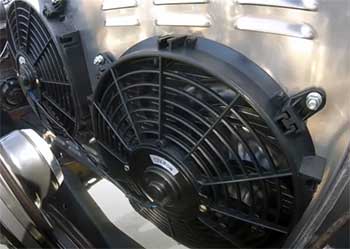
The welds look clean and precise, suggesting attention to detail in the manufacturing process.
Holding it in your hands, the radiator feels well-built and capable of withstanding the rigors of a high-performance engine setup.
However, the first impression extends beyond just its physical appearance.
Installing the radiator is straightforward if you’re familiar with basic car maintenance, and it fits snugly into the designated models, as advertised.
That said, the included fans and shroud can feel somewhat underwhelming in comparison. While they’re functional, they lack the heft and power you might expect from a radiator boasting claims of superior cooling efficiency.
This mismatch between the radiator’s premium feel and the fan assembly could raise a red flag for discerning users.
Another noteworthy aspect is the radiator’s coolant capacity. It’s visibly larger than many stock units, which reinforces the promise of improved thermal management. Yet, this advantage depends heavily on the performance of the accompanying fans, which, as some users report, might not always meet expectations.
While the first impression is largely positive, the true test lies in its on-road performance—an area where experiences have varied widely.
The AlloyWorks radiator boasts a construction designed to improve cooling by 35% to 45%, which is a big claim for any radiator. Crafted from high-quality T-6061 aluminum, it’s marketed as a stronger and more efficient alternative to stock radiators. Here are some standout features:
- Fitment: Specifically designed for 1963-1968 Chevy Bel Air, Impala, Biscayne, El Camino, and Caprice, for both automatic and manual transmissions.
- Capacity: It’s built to handle more coolant, promising to keep your engine cooler.
- Durability: Made entirely of aluminum, it’s designed for longevity and reliability.
Sounds impressive, right? But as we’ll discuss, the reality might not live up to the promises.
Also Read: Mishimoto Radiator Review.
The Pros of The AlloyWorks Radiator
Let’s start with what works well for this radiator:
- Sturdy Construction: The T-6061 aluminum construction feels solid and well-built. Unlike radiators with plastic components, this one is less prone to cracking under pressure, making it a potentially better long-term investment.
- Increased Coolant Capacity: Compared to stock units, the AlloyWorks radiator can hold more coolant. This theoretically provides better thermal management, especially for classic cars that are prone to overheating.
- Appealing Price Point: For an all-aluminum radiator, the price is competitive. If you’re looking for something affordable, it’s an attractive option on the surface.
- Ease of Installation: Many users have noted that the radiator is relatively easy to install, fitting snugly into classic Chevy models without extensive modification.
The Cons of The AlloyWorks Radiator
Unfortunately, the negatives seem to outweigh the positives for many users.
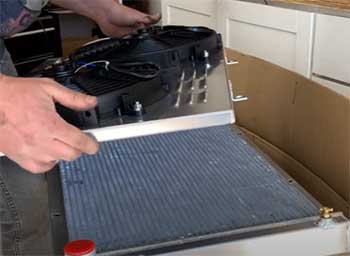
- Cooling Performance Doesn’t Match Expectations: The biggest issue reported by users is that the AlloyWorks radiator often fails to deliver on its promise of superior cooling. When I tested it in my own setup, I noticed similar challenges—even under moderate driving conditions, the temperature stayed uncomfortably high, forcing me to explore alternative cooling solutions. For instance:
- One user installed it in their 1966 Chevy Impala with a 327 engine, only to find temperatures hovering between 214°F and 216°F — much higher than expected.
- Another user experienced overheating in their Plymouth Duster with a 5.7 Hemi engine. They had to replace the provided fans with aftermarket ones to achieve satisfactory cooling.
- Fan Quality Issues: The included fans and shroud have been heavily criticized. They lack the power to effectively circulate air, which significantly undermines the radiator’s cooling potential. Users frequently replace the fans, which adds to the overall cost.
- Unclear Descriptions: Some users feel that the product descriptions are misleading, giving the impression that the radiator is suitable for certain setups when it’s not. This lack of clarity leads to frustration and wasted money.
- Inconsistent Performance: While some users report decent results, the inconsistency in performance makes this radiator a gamble. It’s not a product you can confidently recommend for high-performance engines or hot climates.
Maintenance Tips For AlloyWorks Radiators
If you decide to go with an AlloyWorks radiator despite the mixed reviews, proper maintenance can help maximize its lifespan and performance:
- Regular Coolant Flushing: Flush your radiator at least once a year to prevent blockages and ensure efficient coolant flow.
- Upgrade the Fans: Consider replacing the included fans with high-quality aftermarket options. In my experience, upgrading the fans to a more powerful set made a noticeable difference in cooling efficiency. I swapped out the stock fans with a pair of high-output electric fans, and the temperature issues I had previously encountered were significantly reduced. This additional investment was well worth it for the improved performance. This can significantly improve cooling performance.
- Inspect for Leaks: Check regularly for any leaks or signs of wear. Aluminum radiators are durable, but they’re not immune to damage.
- Clean the Fins: Dust and debris can accumulate on the radiator fins, reducing efficiency. Use compressed air or a soft brush to clean them periodically.
Comparison With Other Radiators
How does the AlloyWorks radiator stack up against the competition? Let’s compare it to a few popular alternatives:
- AlloyWorks Vs. Champion Radiator
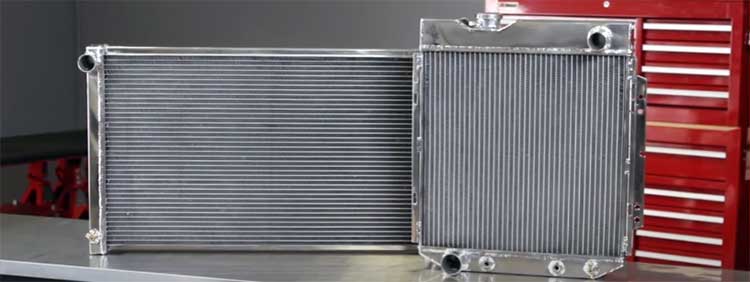
Champion radiators are widely respected for their robust build quality and reliable performance under challenging conditions. They are made from 100% aluminum, just like AlloyWorks, but Champion’s radiators stand out due to their efficient cooling design and superior fan assemblies.
While AlloyWorks radiators often struggle to keep temperatures down under heavy loads, Champion radiators consistently deliver stable cooling even in high-performance or high-temperature scenarios.
Moreover, Champion radiators are backed by a strong reputation for customer satisfaction. Their fans are powerful, reducing the need for aftermarket replacements—a common necessity with AlloyWorks units. If you’re seeking a radiator that requires minimal additional investment, Champion might be worth the higher initial cost.
- AlloyWorks Vs. DENSO Radiator
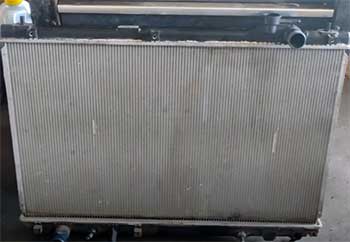
DENSO is a global leader in radiator technology, offering products that combine efficiency and durability.
Unlike AlloyWorks, which focuses on aluminum-only designs, DENSO often employs a hybrid construction of aluminum cores with plastic tanks.
This hybrid approach provides excellent heat dissipation while reducing weight and cost.
One of DENSO’s key strengths is its compatibility with OEM standards.
Their radiators are designed to fit perfectly without the modifications often required with AlloyWorks products.
Additionally, DENSO radiators excel in daily driving and moderate performance use, where consistency is more critical than extreme cooling capabilities.
AlloyWorks may appeal to enthusiasts looking for an all-aluminum radiator, but for practical, reliable cooling, DENSO is the clear winner.
- AlloyWorks Vs. Spectra Premium Radiator
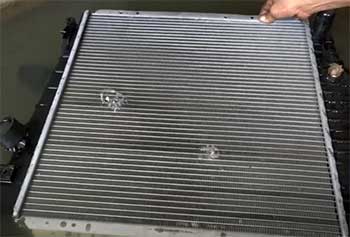
Spectra Premium radiators are another strong contender in the market, known for their dependability and accessibility.
While they don’t boast the high-end materials of AlloyWorks, Spectra radiators excel in delivering reliable cooling for everyday and moderate performance needs.
They’re a favorite among users who prioritize value and consistency over flashy features.
Compared to AlloyWorks, Spectra Premium radiators require far fewer aftermarket adjustments to perform optimally.
Their design closely mirrors OEM specifications, ensuring a hassle-free installation and operation.
If you’re using your vehicle for commuting or light performance, Spectra Premium offers a stress-free experience, whereas AlloyWorks might present more challenges despite its aluminum construction.
Frequently Asked Questions (FAQs)
Alloy radiators, like the AlloyWorks model, can be excellent in theory. Their full-aluminum construction offers better heat dissipation and durability compared to radiators with plastic components. However, the performance depends heavily on design and implementation, and AlloyWorks has been hit-or-miss in this regard.
Yes, aluminum radiators are generally better than those with plastic tanks. They’re more durable, less prone to cracking, and can handle higher pressures. That said, the overall performance also depends on the radiator’s design and the quality of additional components like fans and shrouds.
While aluminum radiators are durable, they’re not without drawbacks:
They can be more expensive.
1. Aluminum is prone to corrosion if not properly maintained.
2. Repairs are more challenging compared to copper or brass radiators.
Copper radiators have better heat transfer properties than aluminum, but they’re heavier and less durable. Aluminum radiators are lighter, more corrosion-resistant, and often preferred for modern and high-performance vehicles. The choice depends on your specific needs and vehicle setup.
Wrapping Up
While the AlloyWorks radiator has its strengths, the inconsistent cooling performance and subpar fan quality make it a questionable choice for many classic car enthusiasts. If you’re on a tight budget and willing to make upgrades, it might still be worth considering.
However, for reliable cooling and peace of mind, exploring alternatives like Mishimoto or Champion Cooling Systems could save you a lot of headaches down the road. At the end of the day, your car deserves a radiator that works as hard as it does—and that might not be AlloyWorks.

